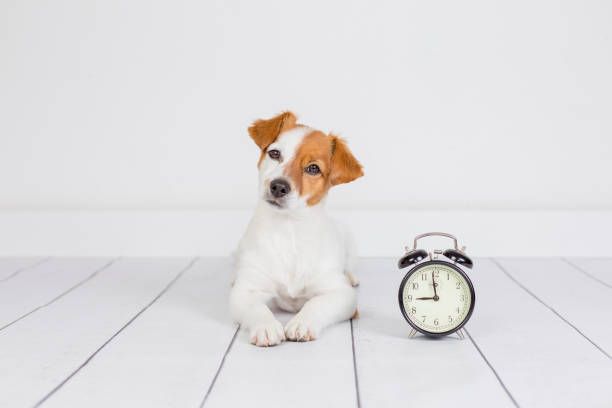Dogs are known for their vocalizations, from barking to growling, whining, and howling. While some of these vocalizations are easy to understand, others may leave us scratching our heads, especially when dogs howl in response to human howls. Why do dogs howl when we howl? This article explores this fascinating topic and sheds light on the science and behavior behind this behavior.
Canine communication basics are essential to understanding why dogs howl when we howl. Dogs use vocalizations and body language to communicate with each other and with humans. Howling is one of the ways dogs communicate, and it can mean different things depending on the context. For example, dogs may howl to announce their presence, to signal distress or discomfort, to express excitement or joy, or to communicate with other dogs over long distances.
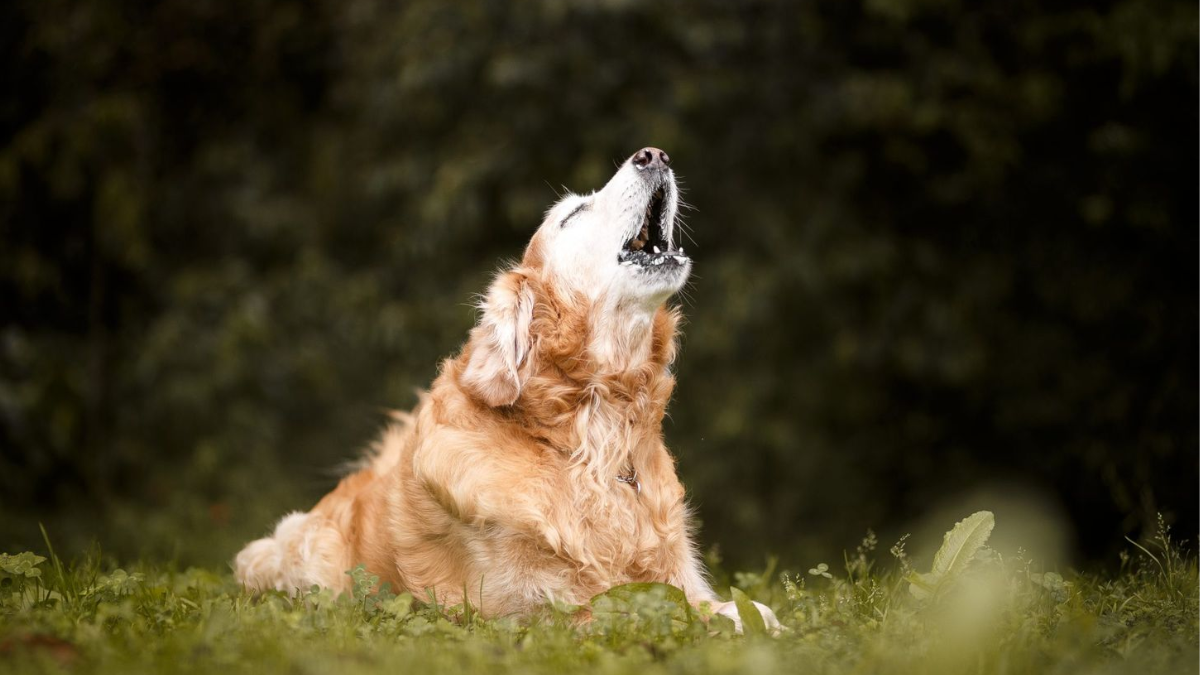
Understanding dog behavior is crucial to interpreting their vocalizations accurately. Dogs are social animals that have evolved to live in groups, and they rely on communication to maintain social bonds and coordinate their activities. Howling is a behavior that has been observed in many canid species, including wolves, coyotes, and foxes, and it serves several functions related to social bonding, territoriality, and reproduction. In the next sections, we will explore the science behind howling and how to train and manage this behavior in pet dogs.
Key Takeaways
- Howling is a natural behavior that dogs use to communicate with each other and humans.
- Understanding the context and meaning of howling is essential to interpreting this behavior accurately.
- Howling can be managed and trained in pet dogs, but it requires knowledge of dog behavior and communication.
Canine Communication Basics
Evolution of Howling
Dogs are descended from wolves, who are known for their howling. Howling is an important form of communication for wolves, as it allows them to communicate with other members of their pack over long distances. Wolves howl to signal their location, to warn other wolves of danger, and to gather the pack together.

Over time, dogs have retained this instinct to howl. However, domestication has changed the way that dogs communicate with humans. While wolves primarily howl to communicate with other wolves, dogs may howl in response to human vocalizations, such as singing or howling.
Howling as a Social Signal
In addition to being a form of communication, howling can also be a social signal for dogs. When one dog howls, it may encourage other dogs in the area to howl as well. This can create a sense of unity and camaraderie among the dogs.
Howling can also be a sign of separation anxiety in dogs. Dogs may howl when they are left alone or when they are separated from their owners. This is because howling can be a way for dogs to express their distress and to try to reconnect with their owners.
Overall, howling is an important form of communication and social signaling for dogs. By understanding the reasons behind why dogs howl, pet owners can better understand their pets and build stronger bonds with them.
Howling in Response to Humans
Dogs are known to be social animals that form strong bonds with their human companions. One way they show this is by howling in response to their humans. This behavior is often observed when a human howls or sings, and the dog responds by joining in.
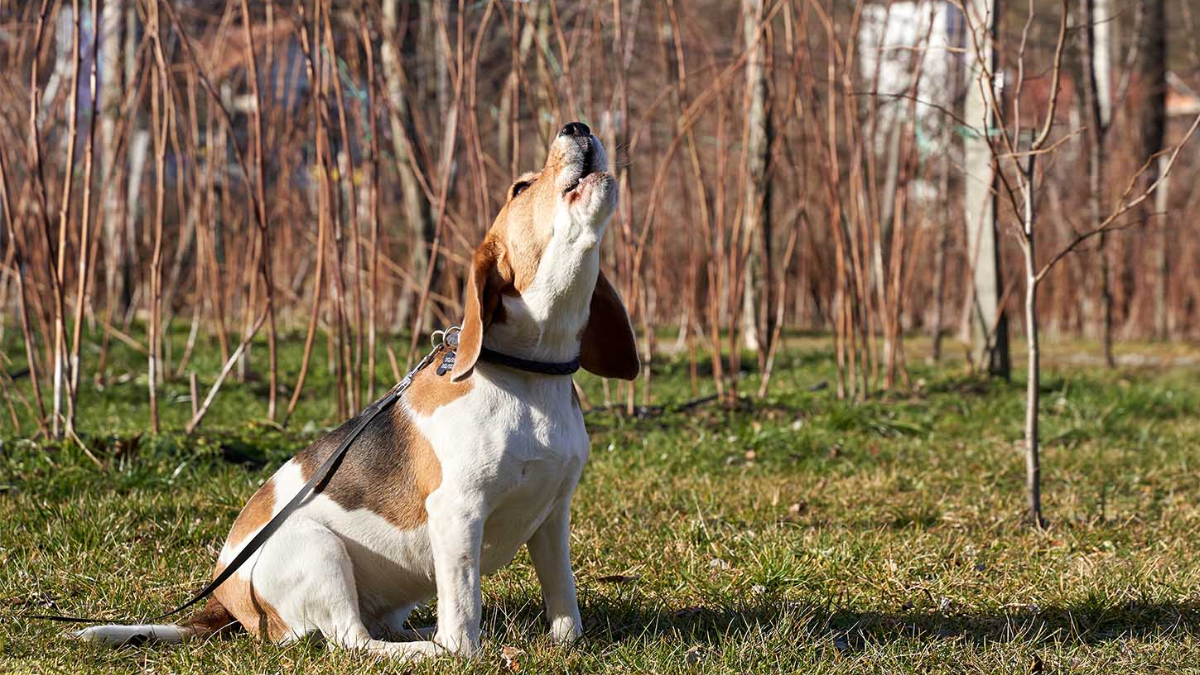
Bonding Through Mimicry
Dogs are highly social creatures that have evolved to communicate with each other through body language, vocalizations, and scent marking. When a dog howls in response to a human, they are essentially mimicking the human's vocalization as a way to communicate and bond with them.
Mimicry is a common behavior in social animals, and it has been shown to strengthen social bonds between individuals. When a dog mimics a human's howl, they are essentially saying, "I understand you, and I want to be close to you."
Attention-Seeking Behavior
Another reason why dogs howl in response to humans is to seek attention. Dogs are known for their attention-seeking behavior, and howling is just one way they get their human's attention.
When a dog howls in response to a human, they are essentially saying, "Look at me! I'm here!" This behavior is often seen in dogs that are left alone for long periods or are not getting enough attention from their humans.
In conclusion, dogs howl in response to humans for a variety of reasons, including bonding through mimicry and attention-seeking behavior. By understanding why dogs howl, we can better communicate and bond with our furry companions.
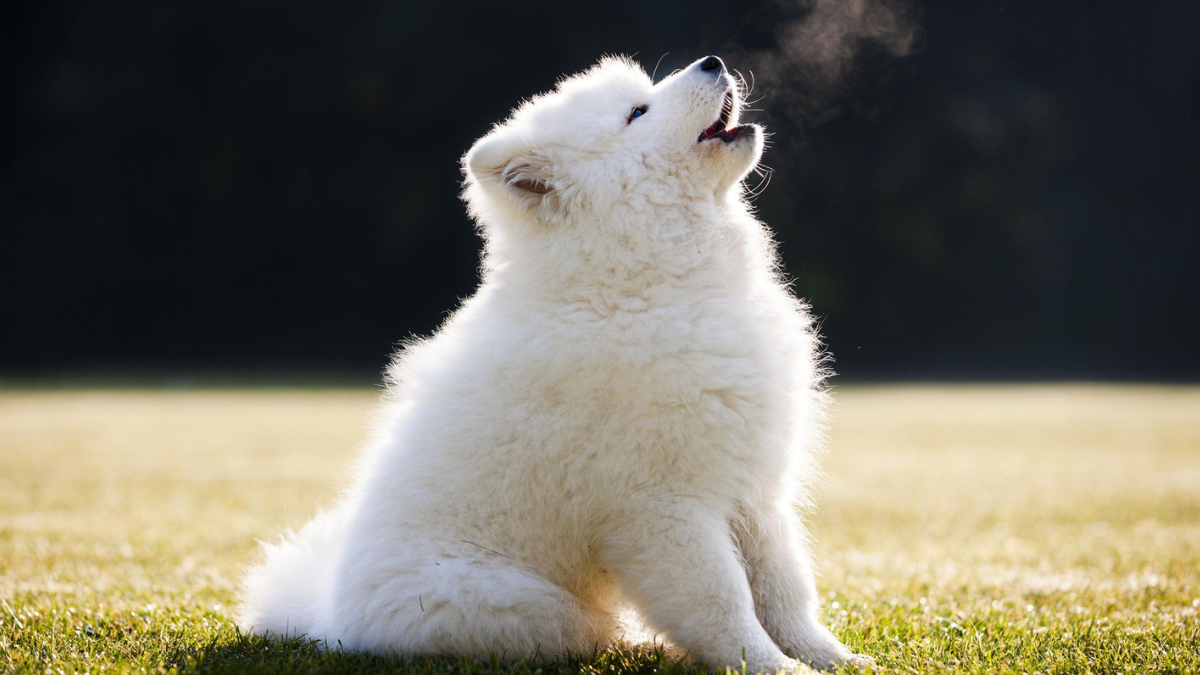
Understanding Dog Behavior
Dogs are known for their vocalization, which can be attributed to several factors such as pack mentality and separation anxiety. Understanding dog behavior can help dog owners determine why their dogs howl when they howl.
Pack Mentality and Howling
Dogs are social animals and have a pack mentality, which means they have a strong sense of community and hierarchy. Howling is a way for dogs to communicate with each other and establish their position in the pack. When a dog hears another dog howling, it may feel the need to respond to establish its presence and reinforce its position in the pack.
Separation Anxiety and Vocalization
Separation anxiety is a common issue among dogs, which can lead to vocalization such as howling. Dogs with separation anxiety may howl when left alone because they feel anxious and stressed. Howling is their way of expressing their distress and seeking attention from their owners.
To address this issue, dog owners can try to alleviate their dog's anxiety by providing them with toys, treats, and a comfortable space to stay in. Additionally, owners can gradually increase the amount of time they leave their dogs alone to help them get used to being alone.
Understanding dog behavior is crucial for dog owners to provide their pets with the appropriate care and attention they need. By recognizing the reasons why dogs howl when they howl, owners can better address their pet's needs and improve their overall well-being.
The Science Behind Howling
Acoustic Structure of Howls
Howling is a natural behavior in dogs that is believed to have evolved from their wolf ancestors. The acoustic structure of howls is characterized by a series of long, drawn-out notes that vary in pitch, volume, and duration. The pitch of a howl can range from low to high, and the volume can be loud enough to be heard from a distance of several miles.
Research has shown that the acoustic structure of howls is influenced by various factors, including the size of the dog, the breed, and the individual's age and sex. For example, larger dogs tend to produce deeper and more resonant howls than smaller dogs. Similarly, male dogs are known to produce louder and more prolonged howls than females.
The Role of Auditory Stimuli
Dogs are highly sensitive to auditory stimuli, and they use howling as a means of communication. Howling can serve several functions, including social bonding, territorial marking, and signaling distress. When a dog hears another dog howling, it may respond with a howl of its own as a way of establishing contact and maintaining social bonds.

In addition to social communication, howling can also serve as a form of territorial marking. By howling, dogs can signal their presence and warn other dogs to stay away from their territory. Howling can also serve as a means of signaling distress. Dogs may howl when they are in pain, frightened, or separated from their owners.
Overall, the science behind howling is complex and multifaceted. By understanding the acoustic structure of howls and the role of auditory stimuli in dog behavior, we can gain a better appreciation for this fascinating behavior and the important role it plays in canine communication.
Training and Managing Howling
Positive Reinforcement Techniques
One effective way to train a dog to howl less is through positive reinforcement techniques. This involves rewarding the dog when they exhibit the desired behavior, such as remaining quiet when their owner howls. Owners can use treats, praise, or playtime as rewards for good behavior. It is important to be consistent with rewards and to avoid punishing the dog for howling, as this can reinforce the behavior.
Another technique is to teach the dog a "quiet" command. This involves teaching the dog to stop howling on commands and using positive reinforcement to reward them when they comply. This can be a helpful tool for managing excessive howling.
Addressing Excessive Howling
If a dog is howling excessively, it may be a sign of an underlying issue that needs to be addressed. For example, the dog may be experiencing separation anxiety or boredom, which can lead to excessive howling. In these cases, it is important to address the root cause of the behavior.
Owners can provide their dogs with plenty of exercise and mental stimulation to prevent boredom. They can also try leaving the dog with toys or puzzle feeders to keep them occupied when they are home alone. In cases of separation anxiety, owners may need to seek professional help from a dog trainer or behaviorist.
Overall, managing a dog's howling behavior requires patience and consistency. By using positive reinforcement techniques and addressing underlying issues, owners can help their dogs learn to howl less and live a happier, more peaceful life.
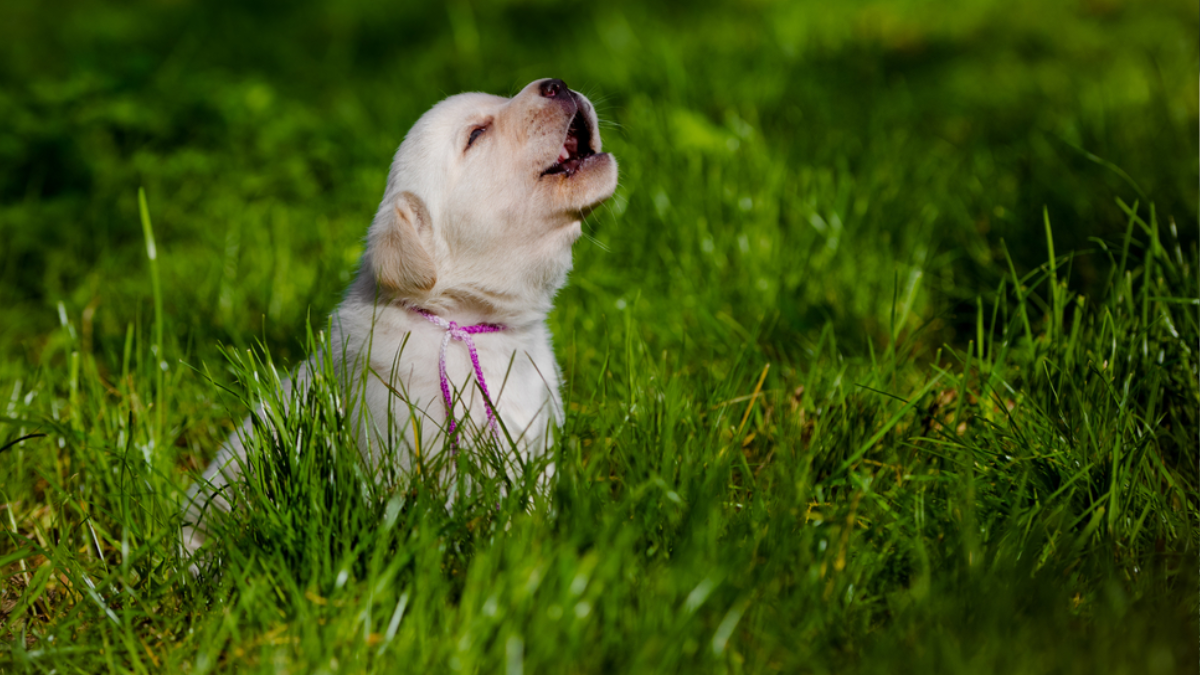
Conclusion:
In conclusion, the phenomenon of dogs howling when we howl is rooted in their instinctual behavior and social nature. While domestic dogs have adapted to living alongside humans, their ancestral instincts still influence their actions. When dogs hear humans howling, they may perceive it as a form of communication or bonding, triggering a response.
Additionally, dogs may howl in response to high-pitched sounds or to express their emotions, such as loneliness or anxiety. Howling serves as a means of vocalizing their presence and seeking connection with their human companions or other dogs.
Understanding why dogs howl when we howl deepens our appreciation for their communication methods and strengthens the bond between humans and dogs. It reminds us of the intricate ways in which dogs interpret and respond to the world around them.
Furthermore, by recognizing the significance of this behavior, we can better address the needs of our canine companions and ensure their well-being. Whether it's through providing companionship, enrichment activities, or positive reinforcement training, we can support dogs in expressing themselves in ways that are natural and fulfilling to them. Ultimately, exploring the question "Why do dogs howl when we howl?" enriches our understanding of canine behavior and enhances our relationships with these beloved animals.
Frequently Asked Questions
- Is it normal for dogs to respond to human howling?
- Yes, it is common for dogs to respond to human howling. Dogs are social animals and have a strong pack mentality. They often mimic the sounds of their pack members as a way to communicate and bond with them. When a dog hears a human howling, it may perceive it as a form of communication and respond with a howl.
- What causes dogs to howl along with human sounds?
- Dogs are highly attuned to sounds and can pick up on subtle variations in tone and pitch. When they hear a human howling, they may interpret it as a form of communication and respond with their vocalizations. Additionally, dogs may howl in response to the emotional state of their human companions. If a person is feeling sad or anxious and begins to howl, their dog may pick up on these emotions and respond with a howl of their own.
- Can howling be a sign of distress in dogs?
- While howling is a natural behavior for dogs, it can sometimes be a sign of distress. Dogs may howl when they are experiencing pain, anxiety, or fear. It is important to pay attention to the context in which your dog is howling. If they seem agitated or uncomfortable, it may be a sign that they are in distress and need attention from a veterinarian or behaviorist.
- How do dogs perceive human howling?
- Dogs perceive human howling as a form of communication. They may interpret it as a signal that their human companion is trying to communicate with them or as a sign of distress. Dogs are highly attuned to the emotional state of their human companions and may respond to howling based on the emotional cues they pick up on.
- Is it harmful to encourage dogs to howl with you?
- Encouraging dogs to howl with you can be a fun and bonding experience for both you and your dog. However, it is important to be mindful of the context in which you are encouraging your dog to howl. If your dog seems uncomfortable or distressed, it may be best to stop and seek the advice of a veterinarian or behaviorist.
- What does it mean when a dog howls in response to a siren?
- When a dog howls in response to a siren, they are likely responding to the high-pitched sound of the siren. Dogs have a strong sense of hearing and may be more sensitive to certain frequencies than humans. Additionally, dogs may perceive the sound of a siren as a form of communication and respond with their vocalizations.
